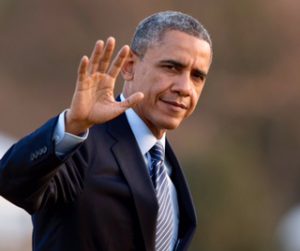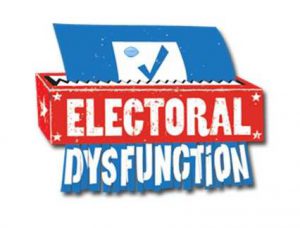January 2017

President Barack Obama walks from Marine One as he arrive on the South Lawn of the White House, Friday, Feb. 7, 2014, in Washington, as he returns from Michigan. (AP Photo/Carolyn Kaster)
With five days left in Barack Obama’s Presidency, everyone, including the President himself, is offering their view of what the legacy of his administration says about a man of whom so many expected so much. But it is also true that the polarized views of that legacy say a lot about the state of a nation of which the world expects better.
By far the most reviled aspect of the Obama legacy is the Patient Protection and Affordable Care Act, derisively termed “Obamacare”. At its root, the intention and effect of Obamacare was straightforward: to provide primary care to the 15 -20 million Americans who did not have access to health benefits by virtue of unemployment or disqualifying pre-existing conditions. To Canadians that have four generations of experience with socialized medicine, this is a no-brainer. That it would result in increased costs for all users of the health care system can hardly come as a shock to anyone. Unemployment is highly correlated with poverty, poverty is highly correlated with poorer general health and people with pre-existing conditions….have pre-existing conditions. Adding two higher risk groups to the ranks of the insured will raise the costs of primary care. That the US managed to have the highest per capita health care costs in the world despite this systematic exclusion from primary care of its most vulnerable citizens only highlights the moral bankruptcy of the healthcare system that Obamacare sought to reform. The willingness of the opponents of the President and Obamacare to ignore this moral question is both notable and disappointing.
Contrast this with Obama’s foreign policy. While it is clearly the aspect for which he is unrelentingly mocked, the most notable diversion from historical precedence of Obama’s foreign policy was not his arguable isolationism and reluctance to bring American power to bear in global hot spots. That tradition has deep roots. Even the many actively interventionist post-WWII administrations that preceded Obama’s consistently met strong domestic opposition. The innovation that Obama introduced to American foreign adventures was a technological one. The use of drone technology to effect extra-judicial killing of American and foreign nationals, often with material civilian “collateral damage”, was open and rampant. That is not to say that its use was not popularly accepted and justified for its expedience. Indeed, no one questioned the moral justification of the breach of Pakistani sovereignty that was instrumental to the attempted arrest and ultimate execution of Osama Bin Laden. But the general willingness of Obama supporters to ignore that there is an ambiguity to this practice that just might cede the moral high ground claimed over the terrorists at whom they are directed is, again, both notable and disappointing.
In the context of the popular assessments of these aspects of the legacy of the outgoing administration, it is hard to be surprised that Barack Obama is to be followed by a President without any discernible compass other than an exasperatingly vague promise to ‘Make America Great Again”. Not surprising; just disappointing.



